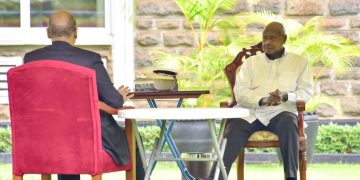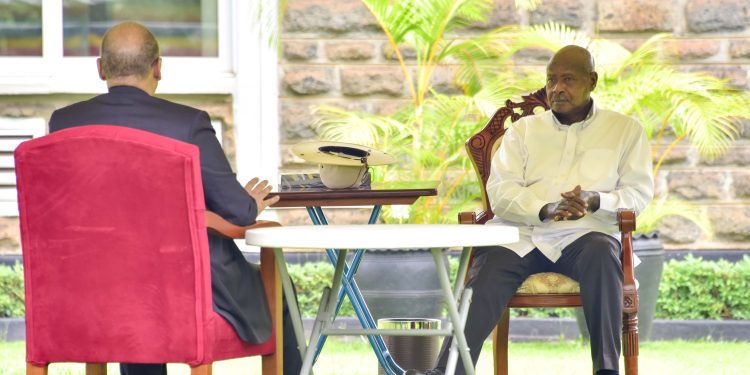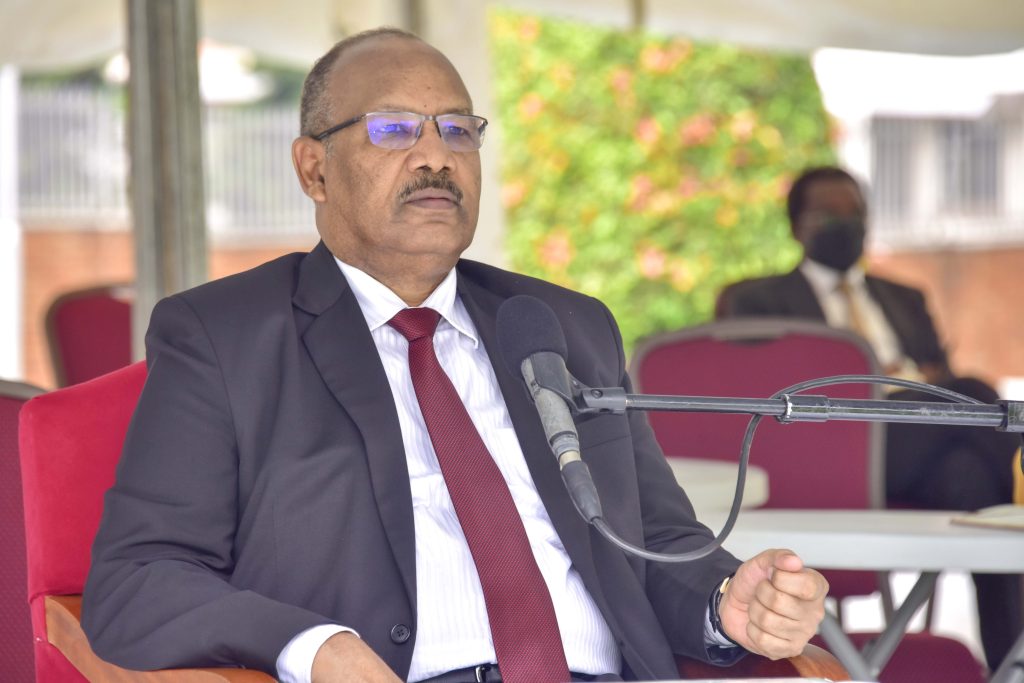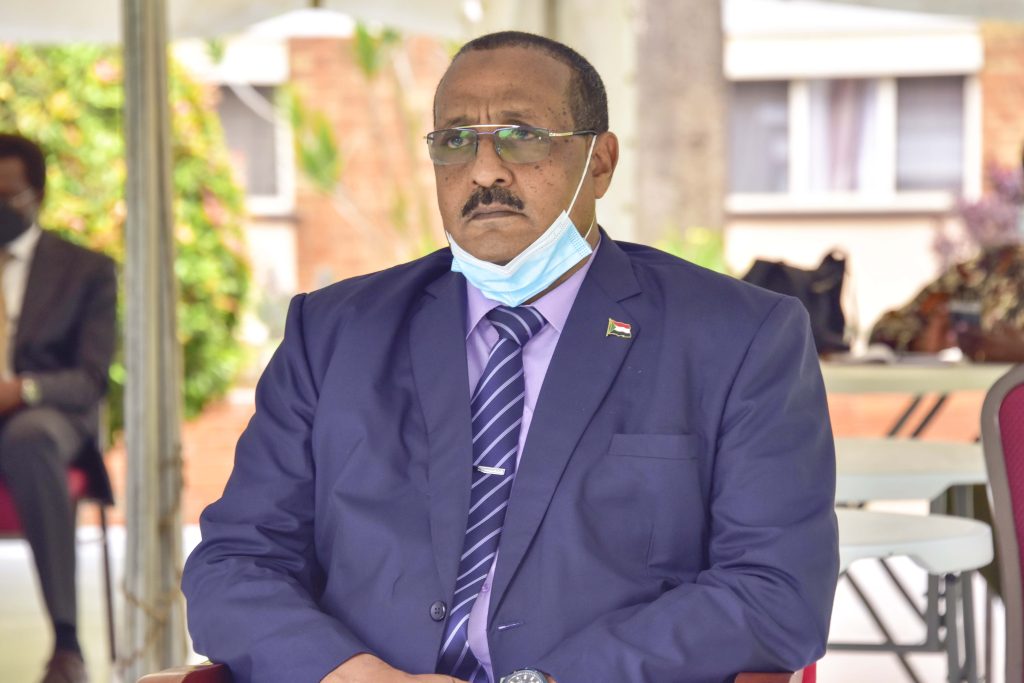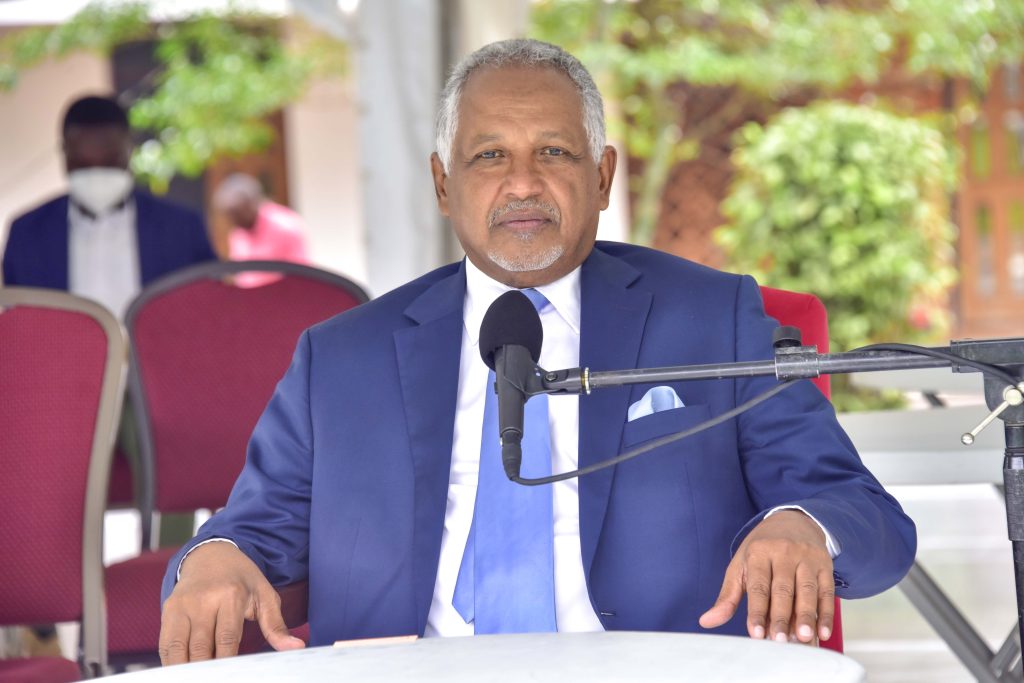President Yoweri Museveni has advised the Sudan Transitional Council to have the correct ideology and accountability to the people they are leading in order to ensure lasting peace.
During the meeting with H.E Lt Gen Eng. Ibrahim Gabir Ibrahim, a member of the Transitional council who is also a Special Envoy from Lt. General Abdel Fattah al-Burhan, President of the Sovereign Transitional Council of the Republic of Sudan at Nakasero State Lodge in Kampala on Friday, Gen Museveni told his guest that in the last 60 years of being active in leadership, he has observed that pushing forward identity politics while forgetting the interests of the people is the root cause of instability in many of the African countries, Sudan inclusive.
“Identity is important, but it should not be promoted at the expense of the common interests of the people,” Gen Museveni said, adding that even Uganda was rescued from the politics of Identity in 1965 by a student movement that taught people to forget about identity politics forgetting the common needs of the people like hunger, peace, education, health and accountability of government.
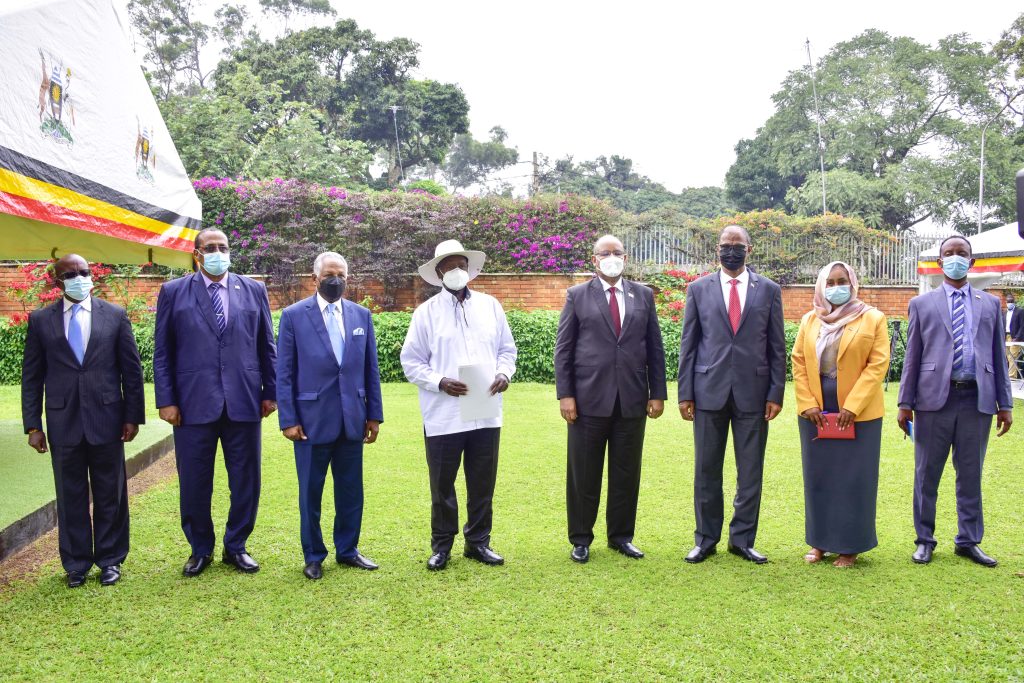
“If you follow politics of Identity, you’re an enemy of the country and it is a misdiagnosis of the problem because it divides the people,” H.E Museveni further noted.
The President gave an example of Uganda in 1962 where no political party could not win with a majority vote because they were all based on sectarian lines of tribe and religion.
“So, they couldn’t win, nobody could win a majority. But because of our line of non-sectarianism, we were able to build a strong army but also when it came to politics, we are always winning with over 50% in the first round despite our own weaknesses,” Gen Museveni said.
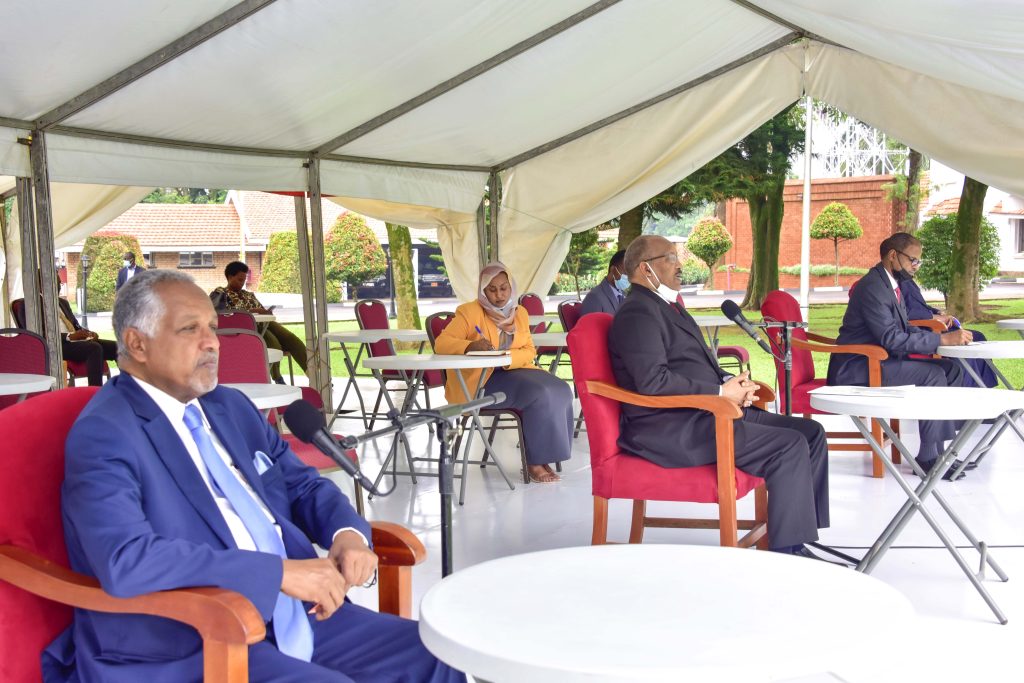
H.E Lt Gen Eng. Ibrahim Gabir Ibrahim, a member of the Sudan Transitional Council, assured President Museveni that the council has maintained relative peace in the country by, among other things, implementing the “Juba Agreement for Peace in Sudan” signed in October 2020, by Sudan’s Transitional Government and representatives of several armed groups.
The agreement aims to achieve stability and peace in Sudan after decades of multiple civil conflicts, which have killed thousands and displaced millions.
Gen Ibrahim Gabir Ibrahim, however, expressed worry about a section of the population including a big number of youths below the age of 40 who don’t know anything about politics, some wanting to take power even before peaceful elections.
“Some people want to exert pressure through demonstrations and come to power without any elections,” Gen Ibrahim told the President.
He was quick to add that the transitional council will do whatever is humanly possible to lead the country until peaceful elections are held.
Sudan’s army chief, General Abdel Fattah al-Burhan, who led a coup in October 2021 that removed the country’s transitional government, appointed a new governing Sovereign Council with representatives of the main bloc demanding a transfer to civilian rule. The new 14-member council includes army commanders, former rebel leaders and new civilian members.
The sovereign council was formed in 2019 as part of a power-sharing agreement between members of the army and civilians with the task of overseeing Sudan’s transition to democracy after a popular uprising led to the removal of longtime ruler Omar Al-Bashir.
Sudan is in Northeast Africa and has a long history of cultural ties to the nearby Arabian Peninsula including a history of Arab influence that impacted Sudan’s national identity (Rehman).
Many in Sudan consider racism to be at the root of conflicts, and those who belong to Sudan’s ruling Arab elite have often been dismissive of those who belong to African tribes far from the capital, Khartoum.
Since seizing power on October 25 last year, Sudan’s military leaders have professed their commitment to holding “free and fair” national elections in July 2023 and possibly even earlier. If Sudan holds elections in 2023, they will be the country’s first since the ousting of Omar Bashir.
H.E Lt Gen Eng. Ibrahim Gabir Ibrahim extended an invitation of Lt. General Abdel Fattah al-Burhan to H.E Museveni for a State visit.
The meeting was attended by among others; Ambassador Daffalla Al-Haj Ali, the Under Secretary Ministry of Foreign Affairs of Sudan, Gen. Issam Mohamed Hassan Karrar, the secretary General Ministry of Défense and staff from the Sudanese Embassy.
The Ugandan delegation was led by Ambassador Arthur Kafeero who is the Director of Regional and International Political Cooperation at the Ministry of Foreign Affairs.
